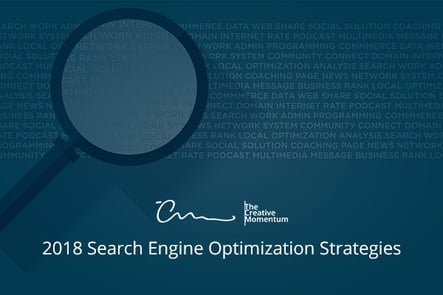
Search engine optimization (SEO) is an ever-changing beast that at times is difficult to tame. Google and other popular search engines continually adjust their algorithms and assessment tools to provide the types of results that are most likely to satisfy those doing the searches.
For some online marketers, those changes represent threats to their businesses. Yet, those who take proactive steps to improve their SEO strategies and tactics will find opportunity in changes employed by search engines. The following tips will help you create opportunities for improving your online marketing efficiency.
Increase Your Page Speed
Page speed refers to how fast your web pages load. The faster they load, the more consumers and Google love it. A fast-loading web page that contains relevant information holds the interest of your visitors. It also ranks higher on Google search results.
Yet, many websites make critical errors that slow down their loading speed. That annoys page visitors, and Google takes notice with lower search rankings. Fortunately, you have options to improve your page speed and search rankings.
The most obvious is to ensure all images are ready for web and load nearly instantly. If your pictures, images, graphics and other data are too large and not made ready for the web, you slow down the time it takes the page to load.
If you have too many web pages with too many high-definition images and other graphics that are not made ready for web pages, your entire website slows down. A slowly loading website and corresponding web pages will drive away visitors. Google will take notice, and not in a good way.
Another great way to improve page speed is to utilize page caching to speed up your server response. A page cache copies a web page and stores it on a server so that the page comes up faster on subsequent visits. Instead of forcing the server to load an entire web page from scratch, the server simply resorts to the cache copy and makes it available in a fraction of the time it would take to load the entire page.
Optimize for Mobile-First Rankings
When you optimize your website for improved search rankings, you must pay close attention to how it interacts with mobile devices. Google is the king of search engines, and consumers are using mobile searches at increasing rates. More than 40 percent of online searches are done via mobile devices, and smartphones account for more than a third of all retail sales. That adds up to more than $1 trillion in sales done via smartphones.
In July, Google initiated its “Speed Update” of website rankings to emphasize those that load fastest for mobile devices. Now, Google emphasizes the speed at which your site loads for mobile web browsers to reflect consumers’ growing reliance on smartphones and other mobile devices.
If your website is optimized for only online marketing, and you have ignored mobile users, your website likely will see a drop in performance and search rankings. You need to ensure your website is fully functional with mobile web browsers and loads just as quickly as it does for online visitors. So long as both online and mobile pages load quickly, you should be fine. If not, you need to optimize your website for mobile applications.
Transfer Protocols Impact SEO Performance
An often overlooked element of your SEO success is the website security certificate. About four years ago, Google began emphasizing HTTPS connections over the then-standard HTTP connection. HTTP stands for Hypertext Transfer Protocol, which enables you to exchange information on the internet. Unfortunately, that information is not secured from third parties and is vulnerable to hacking and other interference.
An HTTPS connection secures the information exchanged and helps keep your communications private. HTTPS stands for Hypertext Transfer Protocol Secure and a secure sockets layer (SSL) to secure the information you share online.
When you switch from an HTTP certificate to an HTTPS, your corresponding web pages should see a modest improvement in Google search rankings. As Google continues emphasizing HTTPS connections, over time, there likely will be significant improvements to your search rankings.
Always Provide Quality Content
Your SEO efforts will always be tied to the quality of content you provide and its relevance to those you seek to engage. That means you need to provide educational content that is helpful, engages readers, and ultimately improves your website conversions. Unique, high-quality content provides inbound marketing that attracts and engages the clients you want the most. The more engaged your visitors, the longer they stay, and the better Google and other search engines will reward your efforts.
Providing quality content goes beyond simply providing informational articles and relevant content. You also need to ensure the presentation is done properly, including how you use graphics, images, and other types of information. Even the color of your web page can make a significant difference in how visitors interact and respond to your content and marketing appeals.
Ensure Links Work Properly
Much of your inbound marketing will include links to other high-quality websites and sources used to provide quality content. Over time, though, those links often become broken, and the web pages to which they link might no longer function. That means you have dead links, and Google and other search engines punish sites with dead links.
You need to ensure all links work and lead to quality websites and content that enhance your own website and marketing efforts. The faster the links work, and the better the sites to which they link, the more effective your SEO efforts will become. Building links is only half the battle. The other half is ensuring the links work and remain relevant.
Embrace Your Atypical SEO Strategies
Employing SEO strategies enables you to turn potential threats into business opportunities. When your page speed is fast, your website is optimized for mobile browsers, and you employ HTTPS protocols, Google and other search engines will reward you with better rankings. When those strategies are paired with quality content and solid link-building, you can gain a significant advantage over competitors, while making your website a more powerful marketing tool.



